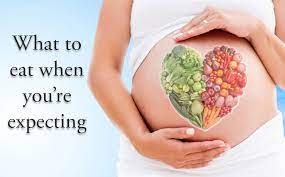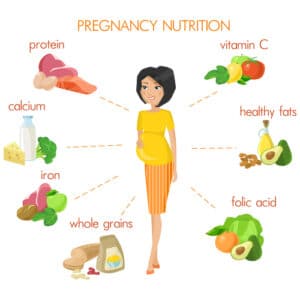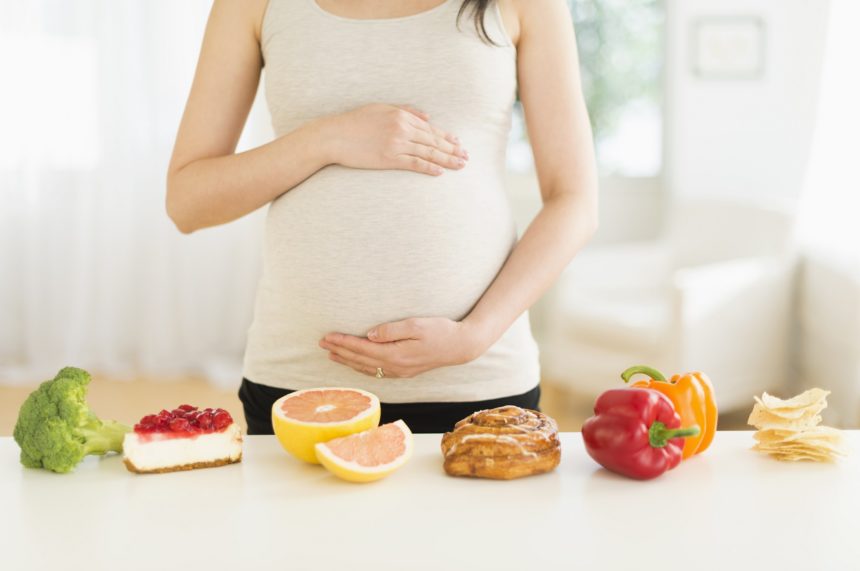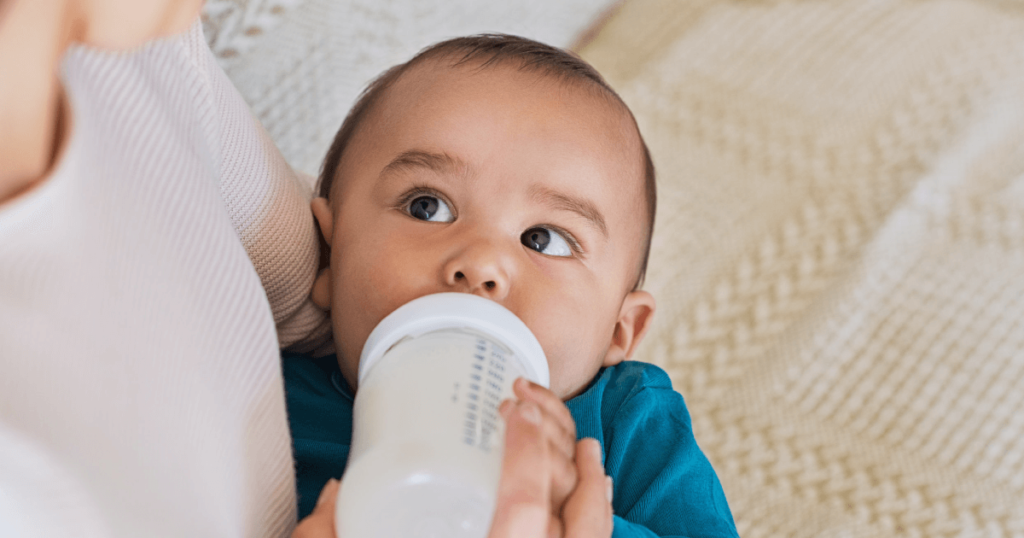The Use of Proper Nutrition During Pregnancy
Biochemical nutrition plays an important role for pregnant women. During pregnancy, the daily calorie or energy requirements change. It is enhanced by proper nutrition during pregnancy about one hundred and twenty kilocalories during the first trimester and by an additional 230 kilocalories on top of that every day during the second and third trimesters.
It is likely that your appetite will increase, and you may often feel hungry. Hence, weight gain during pregnancy is common. If your weight and BMI are within normal ranges, you can expect to gain 25 to 35 lbs if you are carrying a single baby.
To ensure a healthy and balanced diet, it’s important to consume a diverse range of food groups. Vegetables, fruits, whole grains, low-fat dairy products, and protein foods should all be included in your diet. When selecting food and drink options, it’s best to choose those that are lower in added sugars, saturated fats, and sodium levels.
Conversely, it’s important to limit the intake of refined grains and starches. These are commonly found in processed snacks, white bread, and sugary treats. By prioritizing nutrient-rich foods and minimizing unhealthy options, you can optimize your diet for optimal health and wellness.
Why is it more important to eat well during your second trimester?

Your body goes through major changes every month of pregnancy. The body develops itself to adjust so that the child can thrive so you have to take nutrition during pregnancy. Your basal metabolic rate rises by five percent in the first two trimesters and around twelve percent in the last trimester of pregnancy.
Your blood formation increases, and additionally, your body will deposit excess fats to be further utilized during breastfeeding. Proper nutrition during pregnancy will make you ready for all this.
Vitamins and Minerals During Pregnancy
You do not need to go on a special diet, but it’s important to eat a variety of different foods every day. Its mandatory to get the right balance of nutrients that you and your baby need. It’s best to get vitamins and minerals from the foods you eat. A major proportion of energy you need a healthy food will be from the grains, cereals, and bread you consume during pregnancy.
Make sure you eat whole grain, which has good nutrients such as iron, B Vitamins, and fiber. Your developing baby and your body both require protein in optimal quantity, especially during the second and third trimesters.
Meat, poultry, fish, eggs, and beans contain protein. Fish could be a great source of protein and prove a healthy food. One thing to make sure you avoid is the ones containing high levels of mercury during pregnancy. Make sure to consume at least 3 servings of protein, 2-4 servings of fruit, 4 or more servings of vegetables, and 6-11 servings of bread/grains daily.
Vital Nutrients During Pregnancy
Apart from proteins, carbohydrates, and fats, your body requires vitamins and minerals to help in the development of your baby. Most importantly, you need 0.4 mg of folic acid daily for a healthy time. This specific type of vitamin such as vitamin B helps in preventing neural birth defects in the baby.
Dark green leafy vegetables such as legumes, cereals, and berries are great sources of folic acid during pregnancy. Folic acid can help reduce the risk of neural tube defects, which are birth defects of the brain and spinal cord. Therefore, your intake of folic acid should begin before conception and continue throughout your pregnancy.

Your healthcare provider or midwife will recommend the appropriate amount of folic acid to meet your individual needs. For example, women who take anti-epileptic drugs may need to take higher doses of folic acid to prevent neural tube defects. Vitamin C is equally important, and you need at least 70 mg of Vitamin C every day.
Oranges, vegetables such as broccoli, and tomatoes have excellent nutrients in them. Iron helps to carry oxygen to your growing baby. It also carries oxygen to your muscles to help avoid symptoms such as fatigue, weakness, irritability, and depression.
Other nutrients you need, for example, calcium, phosphorus, Vitamin D, K, C, A, B complex, and cobalmin, should be optimally consumed as well during pregnancy.
Most of your vital nutrient requirements should be fulfilled by your diet. However, sometimes there might remain some gaps, and that’s where supplements will help. Specialists recommend taking nutritional supplements 3 months prior to pregnancy.
What Not to Eat During Pregnancy?
Just like you concentrate on the foods that you eat, make sure you pay attention to the food that you should not consume during pregnancy for you and your baby. As mentioned earlier, certain fishes have high quantities of mercury and should be avoided.
Drinking alcohol should be absolutely avoided as it results in developmental issues in the baby. You should, additionally, reduce your intake of caffeine to prevent miscarriages.
Visiting a Nutritionist During Pregnancy
Make sure to visit a nutritionist during your pregnancy to find out what you should eat according to your body weight and lifestyle. Make sure to find out your health care provider if you need any additional supplementation for you and your baby.
An Insight from Mamahood
Pregnancy is a beautiful journey. It involves innumerable changes to your body, but if well informed and with the assistance of professional help, these hurdles can be easily crossed. The body changes are normal, and little changes in your diet will offer a healthy way ahead for both you and your baby.








